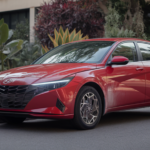The shift toward electric vehicles (EVs) is accelerating, and 2025 promises to be a landmark year for eco-conscious drivers. With governments and organizations worldwide pushing for sustainability, EV tax incentives and rebates have become more lucrative than ever. But navigating the complex landscape of credits, deductions, and programs can be overwhelming.
This guide will help you unlock the best EV tax incentives and rebates in 2025, saving you thousands of dollars while contributing to a cleaner planet.
Understanding EV Tax Incentives and Rebates
EV incentives are designed to make electric vehicles more accessible and affordable. These programs vary by country, state, and even local municipalities, offering everything from tax credits to cash rebates and discounted charging rates. Here’s a breakdown of the most common types of incentives:
- Federal Tax Credits:
- The U.S. federal government offers a tax credit of up to $7,500 for qualifying EVs.
- In 2025, new rules may phase out credits for certain manufacturers, so timing is crucial.
- State and Local Rebates:
- States like California, New York, and Colorado offer additional rebates, often ranging from 1,000to5,000.
- Some local utilities also provide incentives for installing home charging stations.
- Utility Company Incentives:
- Many utility companies offer discounted electricity rates for EV charging during off-peak hours.
- Some even provide cash rebates for purchasing or leasing an EV.
- HOV Lane Access:
- Certain states allow EV drivers to use High-Occupancy Vehicle (HOV) lanes, even with a single occupant.
Top Tips to Maximize Your EV Savings in 2025
- Research Federal and State Programs:
- Visit the U.S. Department of Energy’s website for a comprehensive list of federal and state incentives.
- Check for updates, as programs and eligibility criteria can change annually.
- Choose an Eligible Vehicle:
- Not all EVs qualify for incentives. Ensure your chosen model meets the battery capacity and manufacturer requirements.
- Popular models like the Tesla Model 3, Ford Mustang Mach-E, and Chevrolet Bolt EV often qualify.
- Time Your Purchase:
- Some incentives are capped or phased out once a manufacturer sells a certain number of EVs. Buy early to secure the best deals.
- Explore Utility Company Programs:
- Contact your local utility provider to learn about EV-specific rates and rebates.
- Some programs offer free home charger installations or discounted charging equipment.
- Lease vs. Buy:
- If you lease an EV, the tax credit may go to the leasing company, but they often pass the savings to you in the form of lower monthly payments.
- Combine Incentives:
- Stack federal, state, and local incentives to maximize your savings. For example, a 7,500federalcreditcombinedwitha2,000 state rebate can save you $9,500.
2025 EV Incentives: What’s New?
- Expanded Eligibility: More EV models are expected to qualify for federal tax credits as manufacturers ramp up production.
- Income Caps: Some programs may introduce income limits to ensure incentives benefit middle- and lower-income buyers.
- Used EV Incentives: Look for new programs offering credits for pre-owned electric vehicles, making EVs even more affordable.
The Road to Savings: Your EV Incentive Checklist
- Federal Tax Credit: Up to $7,500 for qualifying EVs.
- State Rebates: Check your state’s offerings (e.g., California’s Clean Vehicle Rebate Project).
- Utility Discounts: Explore reduced charging rates and equipment rebates.
- Local Programs: Some cities offer additional incentives for EV adoption.
- HOV Lane Access: Save time and fuel with single-occupant HOV lane privileges.
Drive Green, Save Big
The 2025 EV market is brimming with opportunities to save money while reducing your carbon footprint. By understanding the incentives and rebates available, you can make an informed decision that benefits both your wallet and the planet.


